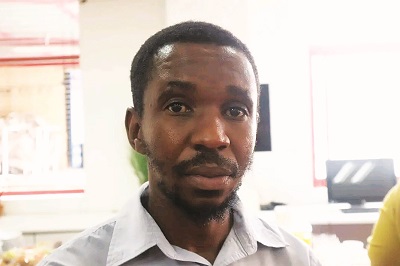By: Thoboloko Ntšonyane
MASERU – In what could be attempts to silence and/or harass the subject, the famous activist and journalist Kananelo Boloetse’s Facebook and Twitter accounts were hacked last week.
Given the person of his stature in society, it is possible that these were not just random hacks but planned and targeted to interfere with his right to access and receive information.
He has successfully challenged the institutions and government and prevailed through a number of litigations lodged in the courts.
Boloetse boasts a full friendlist and 6.1k followers on Facebook.
Activists and journalists sometimes find themselves socially exposed and under undue surveillance because of the nature of their work.
As an activist, his work includes protection of and advocacy for the rule of law and consumer rights. It extends to holding governance accountable.
WHAT BOLOETSE DID FOR BASOTHO
In 2021 he approached the telecommunications regulator the Lesotho Communications Authority (LCA) to order Vodacom Lesotho (VCL) and Econet Telecom Lesotho (ETL) to stop charging out of bundle rates when the subscribers’ data had run out without their consent. The charge was embraced as this no longer happens.
The telecoms now requests consumers’ permission before charging them from their airtime when their data runs out and they also send regular messages updating their subscribers on the amount of data bundles left.
In 2022, Boloetse and Advocate Lintle Tuke petitioned the Constitutional Court following the State of Emergency declaration and the recall of Parliament whose term had already ended in order to pass critical pieces of legislation including reforms laws and the court ruled in their favor.
Last year he also challenged the parliament from invoking the provisions of the Standing Order No 105 which says the incoming parliament can continue with the work from where the previous one had ended. This case was in relation to the parliament’s move to resuscitate the reforms without having to go through the committee’s to work them and summon interested parties to make their submissions into those laws.
Following the announcement by the Lesotho Electricity and Water Authority (LEWA) last month that it gives Lesotho Electricity Company (LEC) a 9.6% tariff increase, Boloetse through the organisation he co-founded last year, Advocates for Supremacy of the Constitution, famously known as Section 2.
He told Informative Newspaper that as one of the administrators of the Section 2 Facebook page, he has been removed from administering this page.
Section 2 has recently requested donations from the public to assist in paying lawyers to file a case challenging the implementation of revised electricity tariffs.
They want the tariffs imposed to be stayed pending the finalization of the case, as they want the court to order LEC to, among other things, produce the audited financial statements for the previous year.
While he has managed to regain access to his Facebook account, Boloetse is still grappling to access his X account.
Cyber-attacks on prominent individuals and institutions seem to be a recurring event of late.
Just last year the Central Bank of Lesotho (CBL) systems were attacked causing the banks to resort to manual payment systems and delaying nationwide trade payments.
First Deputy Governor of CBL Lehlomela Mohapi says the type of the attack which the CBL suffered was ransom ware attack. This is a type of malware that invades the victim’s data and sometimes their devices; the aim by attacker’s is so that the victim pays ransom to them.
The bank’s investigations reveal that the attack had been launched by a group called INC Ransomware, a new ransomware group and according to the information available on the internet, it emerged in August 2023.
Mohapi says this group had encrypted five Bank servers, a move which prompted CBL to be taken off from the online system but continue to operate through its other systems hosted within the SADC (Southern African Development Community).
The proposed Computer Crime and Cybersecurity Bill does not specifically address the issue of online hacking, but says interception of electronic messages is a punishable offense and can attract a penalty of M1 million, a six year imprisonment or both.
Boloetse plans to report this incident to police.
Boloetse is also a Chairperson for the Media Institute of Southern Africa (MISA) Lesotho, a regional body which advocates for freedom of expression, media rights and plurality among others.


